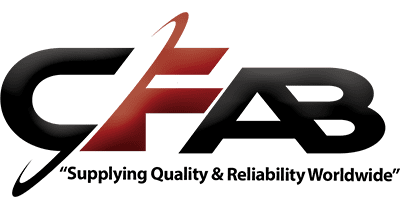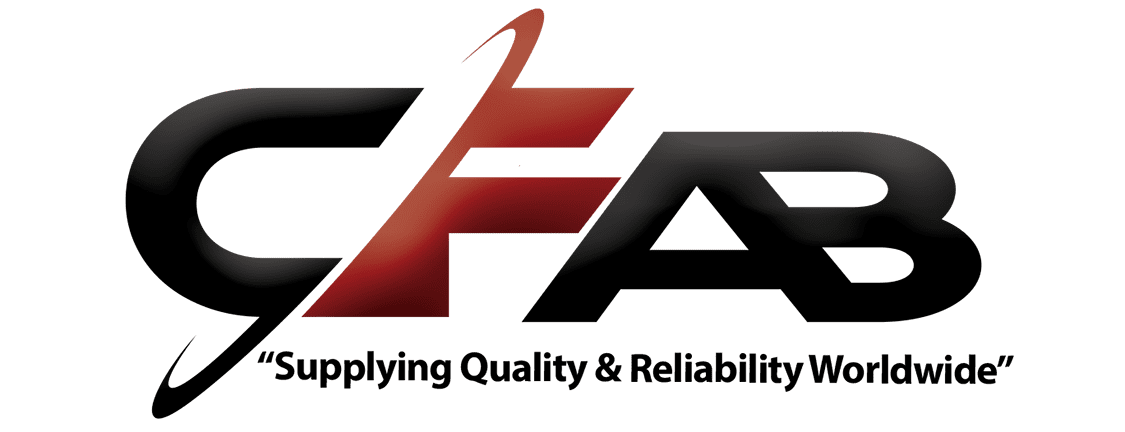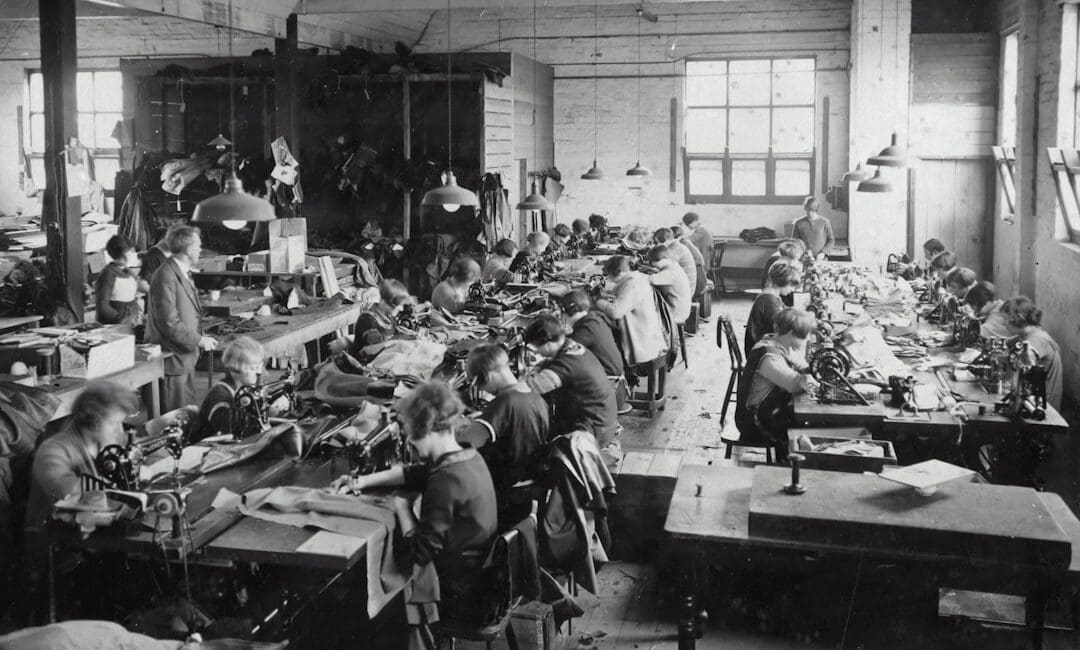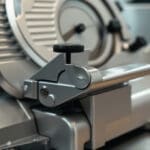Introduction
Plastics machinery maintenance services are essential for any manufacturing company looking to boost productivity, reduce downtime, and extend the life of their equipment. If you’re searching for a quick overview, here’s what you need to know:
- Perform routine checks and scheduled services.
- Implement preventative maintenance strategies.
- Troubleshoot issues promptly.
- Keep detailed maintenance records.
- Train staff on proper maintenance procedures.
Keeping your plastics machinery in top shape isn’t just about fixing problems when they arise; it’s about preventing them in the first place. Proper maintenance ensures efficiency and longevity, saving your company both time and money.
Consider a real-world example: The lifespan of an injection molding machine can be greatly extended by regular cleaning, lubrication, and timely oil changes. Such practices prevent wear and tear, ensuring consistent performance and reducing the frequency of breakdowns.
For those in the food packaging or processing industries, companies like Beth-El Machinery Ltd. offer specialized solutions to maintain high standards of hygiene and efficiency in your operations.
By following proper maintenance procedures, you can prevent costly repairs and unplanned downtimes, securing long-term success for your business.

Understanding Plastics Machinery
In plastics machinery, understanding the various processes and their applications is key to mastering maintenance. Here, we’ll break down the main types of plastics machinery: Injection Moulding, Extrusion, Blow Moulding, Thermoforming, and Compression Molding.
Injection Moulding
Injection moulding is one of the most common processes used in the plastics industry. It involves feeding plastic pellets into a heated barrel, melting them, and then injecting the molten plastic into a mold. The mold shapes the plastic into the desired form, which is then cooled and ejected.

Key Points:
– High Precision: Ideal for producing complex and detailed parts.
– Speed: Capable of creating a large number of parts quickly.
– Versatility: Can use a wide range of materials, including thermoplastics and some thermosets.
Extrusion
Extrusion is used to create continuous shapes like pipes, sheets, and profiles. The plastic material is melted and forced through a die, forming a continuous shape that is then cooled and cut to length.

Key Points:
– Continuous Production: Perfect for high-volume manufacturing.
– Consistency: Produces uniform cross-sectional shapes.
– Variety: Can handle flexible and rigid materials.
Blow Moulding
Blow moulding is essential for producing hollow plastic parts like bottles and containers. The process involves heating plastic until it’s pliable, forming a parison (a tube of hot plastic), and then inflating it inside a mold to take its shape.

Key Points:
– Efficiency: Great for mass production of hollow items.
– Flexibility: Suitable for various sizes and shapes.
– Cost-Effective: Lower tooling costs compared to injection moulding.
Thermoforming
Thermoforming uses heat to make plastic sheets pliable, which are then formed over a mold by applying vacuum, air pressure, or mechanical force. This method is often used for packaging, trays, and disposable cups.

Key Points:
– Simplicity: Simple and cost-effective for large parts with thin walls.
– Speed: Quick setup and production times.
– Versatility: Can use both single and multilayer sheets.
Compression Molding
Compression molding is primarily used for thermosetting plastics. The material is placed into a heated mold cavity, then compressed to shape and cured. This process is common for producing durable, high-strength parts.

Key Points:
– Strength: Produces strong, high-quality parts.
– Complex Shapes: Suitable for intricate designs.
– Durability: Ideal for high-stress applications.
Understanding these processes is crucial for anyone involved in plastics machinery maintenance services. Each type of machinery has unique maintenance needs and challenges, from the precision of injection moulding to the continuous nature of extrusion.
Next, we’ll dive into the importance of regular maintenance and troubleshooting to keep these machines running smoothly.
Regular Maintenance and Troubleshooting
Regular maintenance is the backbone of plastics machinery maintenance services. It ensures machines operate efficiently, minimizes downtime, and extends the lifespan of expensive equipment. Let’s break down the essential components of a robust maintenance strategy.
Routine Checks
Routine checks are daily or weekly inspections to catch minor issues before they become major problems. These checks include:
- Visual Inspections: Look for wear and tear, leaks, or unusual vibrations.
- Lubrication: Ensure all moving parts are well-lubricated to reduce friction.
- Cleaning: Keep machines free of dust and debris to prevent overheating and mechanical failures.
For instance, maintaining an injection molding machine involves checking hydraulic oil levels and ensuring guide posts and ejector pins are properly lubricated .
Emergency Repairs
Despite the best preventative measures, emergencies happen. When they do, quick and effective repairs are crucial. CFAB Global offers 24/7 emergency repair services to address these urgent needs. This rapid response minimizes downtime and gets your production line back on track swiftly .
Scheduled Service
Scheduled services are more in-depth and occur less frequently than routine checks. These include:
- Quarterly Inspections: Focus on cleaning and maintenance of infrequently used molds, checking for rust, and applying protective coatings.
- Annual Overhauls: Comprehensive inspections and refurbishments to replace worn-out parts and upgrade outdated systems.
Diagnostics
Effective diagnostics are key to identifying issues before they cause significant damage. Modern diagnostics involve:
- Control Systems: Using PLCs and other control systems to monitor machine performance.
- Energy Audits: Assessing energy consumption to identify inefficiencies and potential upgrades.
For example, CFAB Global technicians use advanced diagnostic tools to troubleshoot and calibrate machinery, ensuring optimal performance source.
Preventative Maintenance
Preventative maintenance is about proactive care to avoid breakdowns. This involves:
- Scheduled Lubrication: Regularly lubricating parts based on manufacturer recommendations.
- Component Replacements: Replacing parts like screws and barrels before they fail.
- System Upgrades: Updating control systems and other components to modern standards.
A good example is the maintenance of barrel cooling systems, which can be water or air-cooled, to ensure consistent performance and prevent overheating source.
By incorporating these strategies, you can significantly enhance the reliability and efficiency of your plastics machinery. Next, we’ll explore the technical skills required for effective machinery maintenance.
Technical Skills for Machinery Maintenance
To excel in plastics machinery maintenance services, mastering a range of technical skills is crucial. Below are the key areas you need to focus on:
Hydraulics
Hydraulic systems are the backbone of many plastics machines. Understanding how to troubleshoot and maintain these systems can prevent significant downtime. For instance, regular inspection of hydraulic components, such as valves and pumps, can detect issues before they escalate.
Tip: Always check for leaks and ensure hydraulic fluids are at the recommended levels.
Pneumatics
Pneumatic systems, which use compressed air to power machinery, are equally important. Skills in maintaining air compressors, filters, and valves will ensure your equipment runs smoothly.
Fact: Properly maintained pneumatic systems can improve efficiency and extend the lifespan of your machinery.
Electrical Systems
A solid understanding of electrical systems is essential. This includes everything from basic wiring to complex circuit boards. Regular checks on electrical connections and components can prevent failures.
Example: Cleaning and inspecting electrical boxes and components can avert costly repairs and downtime .
Control Systems
Modern plastics machinery relies heavily on control systems to operate efficiently. Familiarity with control systems like Allen-Bradley, Siemens, and Mitsubishi can be a game-changer.
Case Study: R&B Plastics Machinery offers comprehensive control system upgrades, including Parison control, to enhance production quality .
PLC/PC
Programmable Logic Controllers (PLCs) and PCs are integral for automating machinery. Knowing how to program and troubleshoot these systems is vital.
Insight: Updating or replacing PLC/PC-based control systems can significantly improve operational efficiency source.
Parison Control
For blow molding machines, Parison control is crucial for ensuring uniform wall thickness. Mastering this skill can greatly improve product quality.
Example: Advanced Parison control systems allow for precise adjustments, leading to consistent and high-quality output source.
By honing these technical skills, you’ll be better equipped to maintain and repair plastics machinery, ensuring they operate at peak efficiency.
Next, we’ll delve into advanced repair techniques that can further extend the lifespan of your machinery.
Advanced Repair Techniques
Gearbox Rebuild
Gearboxes are critical components in plastics machinery. Over time, wear and tear can lead to performance issues. Rebuilding a gearbox involves disassembling, cleaning, inspecting, and replacing worn parts. This process can restore the gearbox to like-new condition, extending its lifespan and improving machine efficiency.
Case Study: A major plastics manufacturer saw a 20% increase in production efficiency after a comprehensive gearbox rebuild. This not only saved costs on new equipment but also minimized downtime.
Screw Replacement
Screws in extrusion and injection molding machines are subject to high wear due to constant material flow and high temperatures. Replacing a worn screw can drastically improve the machine’s performance and product quality.
Fact: According to industry experts, regular screw replacement can increase throughput by up to 15%. This simple maintenance step can have a significant impact on overall productivity.
Barrel Heating/Cooling Systems
Barrel heating and cooling systems are essential for maintaining the proper temperature of the plastic material during processing. Upgrading these systems can lead to better heat distribution and more efficient cooling.
Types of Systems:
– Heating: Steel, bronze, mica, cast aluminum, ceramic
– Cooling: Water or air-cooled
Example: Upgrading to a ceramic heating system can reduce energy consumption by 30%, while water-cooled systems offer more precise temperature control, enhancing product quality.
Control System Upgrades
Modern control systems, such as those by Siemens and Allen-Bradley, offer advanced features like recipe storage and password protection. Upgrading your control systems can improve machine performance, reduce cycle times, and enhance safety.
Quote: “Upgrading to a modern control system can cut cycle times by up to 40%, significantly boosting production capacity,” says an R&B technical expert.
Energy Efficiency
Energy efficiency is a key consideration in plastics machinery maintenance. Implementing energy-efficient components and systems can reduce operational costs and environmental impact.
Statistics: Energy-efficient upgrades can reduce electricity usage by up to 25%. This not only lowers utility bills but also contributes to sustainability goals.
By focusing on these advanced repair techniques, you can significantly extend the lifespan of your plastics machinery and improve overall efficiency.
Next, we’ll explore safety and compliance measures that are essential for maintaining a safe working environment.
Safety and Compliance
Ensuring safety and compliance in plastics machinery maintenance is crucial for protecting workers and maintaining operational efficiency. Here are some key areas to focus on:
ANSI Safety Standards
The American National Standards Institute (ANSI) sets essential safety standards for machinery. Adhering to these standards is not just about compliance; it’s about creating a safe work environment. For instance, ANSI/PLASTICS B151.1-2017 covers the safety requirements for injection molding machines. Regular audits and updates to meet these standards can prevent accidents and ensure smooth operations.
Machine Safety Equipment
Investing in proper machine safety equipment is non-negotiable. This includes emergency stop switches, safety door switches, and guards. According to research, ensuring that all emergency stop switches and safety door switches are effective can significantly reduce the risk of accidents. For example, a facility that installed updated safety door switches saw a 30% reduction in workplace injuries.
OEM Standards
Original Equipment Manufacturer (OEM) standards are the benchmark for maintaining machinery. These standards ensure that all parts and procedures meet the manufacturer’s specifications. Following OEM guidelines can help avoid costly breakdowns and extend the life of your equipment. For instance, a company that adhered strictly to OEM standards for its injection molding machines saw a 40% decrease in unexpected downtime.
Retrofitting for Safety
Retrofitting older machines with modern safety features can bring them up to current safety standards. This includes adding new control systems, safety guards, and emergency stop buttons. Retrofitting not only enhances safety but also improves overall efficiency. For example, retrofitting an older injection molding machine with advanced safety controls and energy-saving drive technology can make it nearly as efficient as a new machine.
By focusing on these safety and compliance measures, you can create a safer working environment and ensure that your machinery operates efficiently and reliably.
Next, we’ll address some frequently asked questions about plastics machinery maintenance to help you further understand the intricacies of keeping your equipment in top shape.
Frequently Asked Questions about Plastics Machinery Maintenance
What is the role of plastic in industrial machinery?
Plastic components are integral to industrial machinery for several reasons. They offer durability, resistance to corrosion, and lightweight properties that are essential for various applications. For example, plastic bearings and gears can reduce friction and wear, leading to longer machine life and reduced maintenance costs. Additionally, plastics are often used in safety guards and housings to protect sensitive parts and operators.
How is special machinery used to make plastic?
Special machinery such as injection molding, extrusion, blow molding, and thermoforming machines are designed to process raw plastic materials into finished products. For instance, an injection molding machine melts plastic pellets and injects them into a mold to form complex shapes. An extrusion machine pushes melted plastic through a die to create continuous shapes like pipes or sheets. Each type of machinery has its own set of maintenance needs and troubleshooting techniques to ensure optimal performance.
What equipment is used in the manufacturing of plastic?
The manufacturing of plastic involves various specialized equipment, each with unique functions:
- Injection Molding Machines: Used for creating complex shapes with high precision. Regular maintenance includes checking hydraulic systems and lubricating moving parts.
- Extrusion Machines: Ideal for producing continuous shapes like pipes and sheets. Maintenance often involves inspecting the die and cleaning the barrel to prevent blockages.
- Blow Molding Machines: Used for making hollow plastic items like bottles. Maintenance tasks include checking the parison control and ensuring the molds are clean.
- Thermoforming Machines: These machines heat plastic sheets and form them over molds. Routine checks include inspecting the heating elements and ensuring proper clamp system function.
For food packaging and processing solutions, Beth-El Machinery Ltd. offers advanced systems for filling, capping, and labeling, ensuring high quality and efficiency in your production line .
Understanding the specific requirements and maintenance needs of each type of machinery can help you keep your equipment running smoothly and efficiently.
Next, we’ll conclude our discussion with some final thoughts on the importance of plastics machinery maintenance and how CFAB Global can assist you in achieving your maintenance goals.
Conclusion
At CFAB Global, we believe that effective maintenance of plastics machinery is crucial for the smooth operation and longevity of your equipment. Our extensive range of plastics machinery maintenance services is designed to meet the unique needs of your business, ensuring that your machinery operates at peak performance.
With over 90 years of combined experience, our team of experts is well-equipped to handle everything from routine maintenance to complex repairs and upgrades. We understand that each piece of equipment has its own set of challenges and requirements, and we tailor our services to meet those specific needs.
Whether you’re dealing with injection molding machines, extrusion lines, or blow molding equipment, our comprehensive services cover all aspects of maintenance and repair. This includes troubleshooting, diagnostics, preventative maintenance, and emergency repairs. Our goal is to minimize downtime and maximize productivity, so you can focus on what you do best—producing high-quality plastic products.
We also offer specialized services for food packaging and processing solutions through our partnership with Beth-El Machinery Ltd. Their advanced systems for filling, capping, and labeling are designed to meet the highest standards of quality and efficiency, ensuring your production line runs smoothly.
CFAB Global is committed to building lasting relationships with our clients. We take the time to understand your business’s unique challenges and objectives, providing tailored solutions that help you achieve your maintenance goals.
For more information on how we can help you maintain and optimize your plastics machinery, visit our Machine Reliability Specialists page.
In the end, proper maintenance is not just about fixing problems—it’s about preventing them. With CFAB Global by your side, you can ensure that your machinery remains reliable, efficient, and ready to meet the demands of your business.
